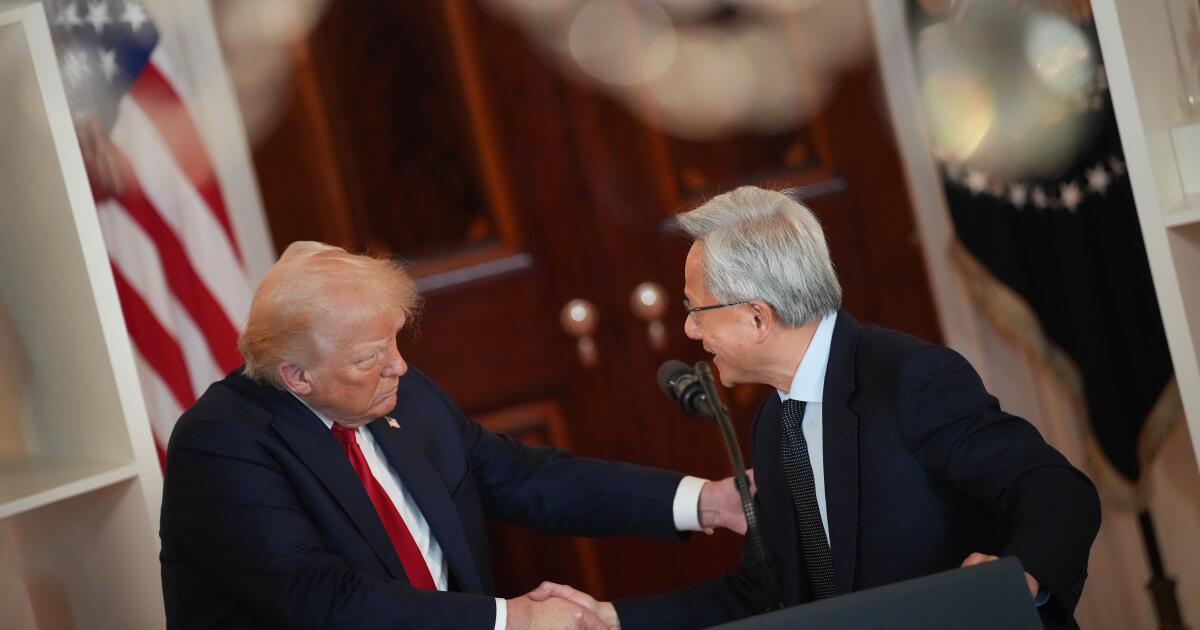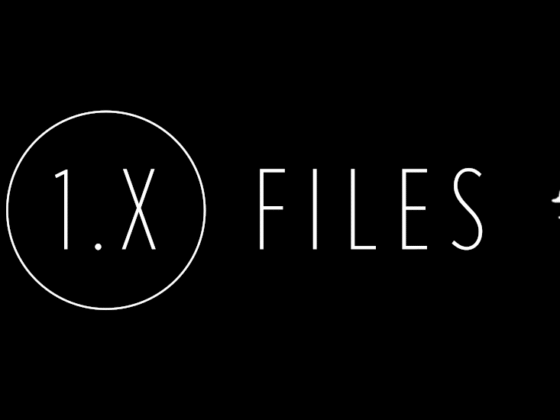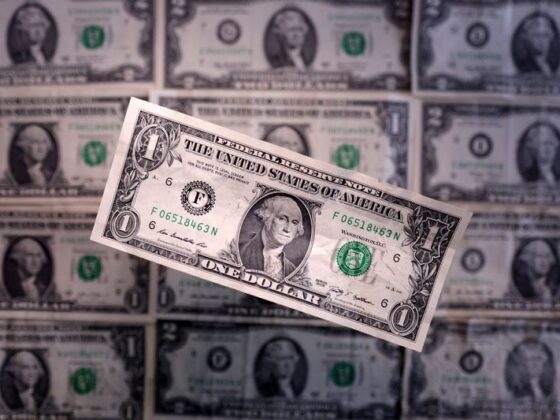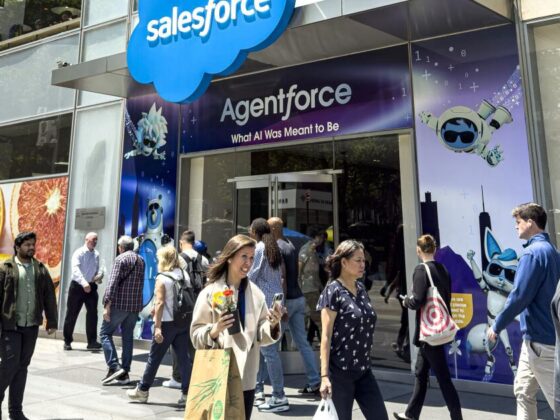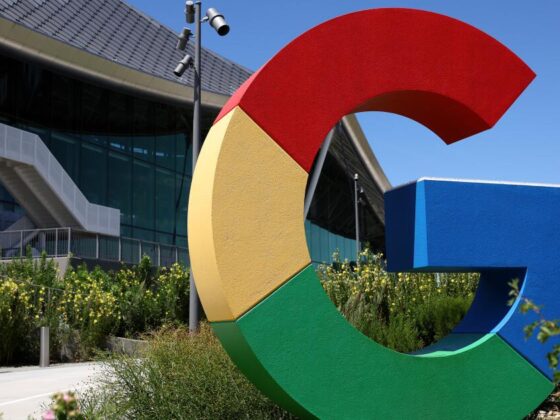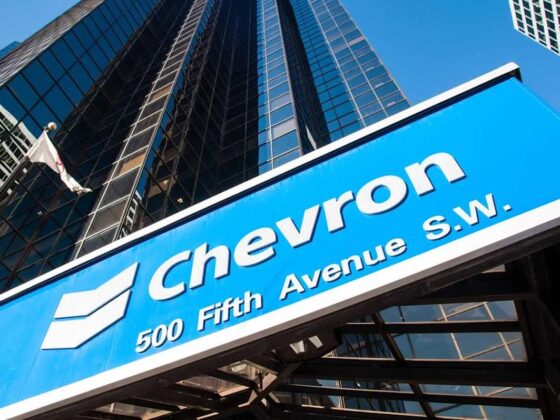One thing that can be said about Donald Trump’s transactional approach to policy-making is that, as destructive as it might be to our economic health, it gives business leaders clear options to get what they want out of the White House.
The latest case-in-point are the deals struck by chipmakers Nvidia and AMD to secure licenses to export their products to China. The White House named the price — 15% of their revenues from such sales — and the companies assented willingly.
Never mind that the exports originally had been banned — by the Biden administration and Trump himself — because of national security concerns. Never mind that the U.S. constitution explicitly prohibits charging any tax or duty on exports.
Anybody who thought that one chess move to somehow ban China from H20s would somehow cut off their ability to do AI is deeply uninformed.
— Nvidia CEO Jensen Huang
Never mind that a stack of U.S. laws, including the Export Control Reform Act of 2018, which Trump signed, don’t provide a pay-to-play escape clause from export restrictions.
Never mind that the exports may strengthen the domestic industry and even its military of China, a country that has been the consistent target of Trump trade policies.
Newsletter
Get the latest from Michael Hiltzik
Commentary on economics and more from a Pulitzer Prize winner.
You may occasionally receive promotional content from the Los Angeles Times.
Despite all that, Trump treated the deals as a win for the U.S. Explaining his side of the conversation when Nvidia asked for relief from the export ban, he related, “I said, ‘If I’m going to do that, I want you to pay us as a country something, because I’m giving you a release.’”
Under the circumstances, it shouldn’t be surprising that some trade professionals and investors see something corrupt in the arrangements. Among them is Christopher Padilla, an export control official under George W. Bush, who told the Washington Post: “Export controls are in place to protect national security, not raise revenue for the government. This arrangement seems like bribery or blackmail, or both.’’
Nvidia, as it happens, has a written anti-corruption policy stating, “We do not tolerate bribery or corruption in our business.” The policy bars “promising, offering, providing, or authorizing the provision of money or anything of value … to obtain, retain, or direct regulatory approvals, contracts, business, or other benefits.”
When I asked Nvidia about the deal, the company referred me to the sole comment it has made in response to questions about it: “We follow rules the U.S. government sets for our participation in worldwide markets.” AMD didn’t respond to my request for comment.
These deals are unprecedented; as the Financial Times observed, citing trade experts, “no US company has ever agreed to pay a portion of their revenues to obtain export licenses.”
There’s no question that Nvidia lobbied ferociously for a lifting of the export ban. The company made a $1-million contribution to Trump’s inaugural committee. Its CEO, Jensen Huang, met directly with Trump to discuss the ban; media reports say that Trump initially demanded a 20% fee, but Huang negotiated it down to 15%.
As has been the case with other Trump-negotiated trade deals, the details of this one are murky in the extreme. The terms haven’t been reduced to writing.
Indeed, White House spokeswoman Karoline Leavitt said Tuesday that its “legality … is still being ironed out by the Department of Commerce,” with an eye toward replicating it with other companies.
Among the questions is how the fee would be paid, and how the money would be spent.
Still, what’s known has caused concern for export regulators, experts and legislators.
“Export controls are a frontline defense in protecting our national security,” tweeted Rep. John Moolenaar (R-Mich.), chair of the House select committee on the Chinese Communist Party, “and we should not set a precedent that incentivizes the Government to grant licenses to sell China technology that will enhance its AI capabilities.”
The effect of this deal on other companies also raises the hackles of economists and trade experts.
“Other American semiconductor companies like Qualcomm and Intel may say, ‘If we develop this cutting-edge chip and the government decides that it has some national security interest in that chip, we might have some of our revenue taken away as well,’” says Kyle Handley, a trade economist at UC San Diego, “so they may decide not to do the R&D investments and the innovation and hire the workers to develop those things.”
The revenue payback “will certainly have a chilling effect,” Handley told me, because the government fee “might make the initial investment appear uneconomical.” That’s especially so if the administration tries to apply the arrangement to industries such as software or pharmaceuticals. The export charge could become a particular burden on startups — Nvidia plainly has enough money to pay the fee, but many other innovative companies wouldn’t.
Whether or how the export tax can be stopped is an open question. For one thing, it’s unclear who would have standing to bring a lawsuit to stop it. Nvidia and AMD have accepted the deal, so they presumably wouldn’t file a case. Companies that fear the imposition of export fees on their own products might have to wait until they could show concrete damage to their own interests in order to bring a case in federal court.
As long as manufacturers such as Nvidia are willing to bow to Trump’s demands, he may have a clear field.
If a legal challenge does emerge, the administration has tried to characterize the export fee as something other than a tax in order to circumvent the constitutional prohibition.
Nvidia developed the H20 chip at the heart of its deal specifically to address an export ban the Biden administration imposed on the company’s sales to China in 2023.
The Chinese government, however, isn’t enamored of the chip. Chinese regulators have been pressuring domestic companies to avoid the chips out of cybersecurity concerns, including suspicion that the chips could contain hidden code that could subject them to outside control. (Nvidia has denied that the chips contain any such back-door exposure.)
The chips also are outmoded for some AI applications compared to the company’s top-of-the-line Blackwell series, which are still subject to a U.S. export ban.
As my colleague Queenie Wong reported, Trump seems to think that he and Nvidia’s Huang had put something over on the Chinese. Trump called the H20 chip “obsolete” and said Huang was “selling a essentially old chip.”
But others say the H20s may yet be preferable to Chinese-designed chips for Chinese firms, although Chinese products are consistently improving.
“The H20 is a potent accelerator of China’s frontier AI capabilities, not an outdated AI chip,” as 20 former government trade officials told Commerce Secretary Howard Lutnick, who oversees trade policy, in a July 28 letter.
“If the U.S. backs off of export controls to China, we believe that China’s next generation of frontier AI will be built on the backs of the H20,” the officials wrote. The chip “will not simply power consumer products or factory logistics; they will enable autonomous weapons systems, intelligence surveillance platforms, and rapid advances in battlefield decision-making.”
How the export deal may affect Nvidia’s top or bottom lines is murky, though its immediate effect doesn’t seem all that significant.
In May, the company announced a $4.5-billion writedown of unsold H20 inventories in the first quarter ended April 27 because of the U.S. ban on H20 sales. But it still recorded $23.3 billion in operating profit for the quarter on sale of $44.1 billion. For its last full fiscal year ended Jan. 26, Nvidia reported a pre-tax profit of $84 billion profit on sales of $130.5 billion.
In stock market terms, Nvidia is the world’s most valuable company, with a market value of $4.4 trillion; its price-earnings multiple is a robust 58.4. With a gain in share price so far this year of nearly 35%, it’s one of a handful of AI-related companies that has kept the market buoyant despite investor concerns about a developing economic slowdown due in part to Trump’s trade policies.
But the company is looking ahead to further incursions into the China market over the long term. “The China market is about $50 billion a year,” Huang told Taiwan-based technology strategist Ben Thompson in May, bemoaning the need to leave behind “the profits that go with that, the scale that goes with that, the ecosystem building that goes with that” while the export ban was in place. So it made sense to allow Nvidia to extract revenue and profits from the cross-border trade.
China is sure to power ahead on AI technology with or without Nvidia’s chips, Huang said — “anybody who thought that one chess move to somehow ban China from H20s would somehow cut off their ability to do AI is deeply uninformed.”

